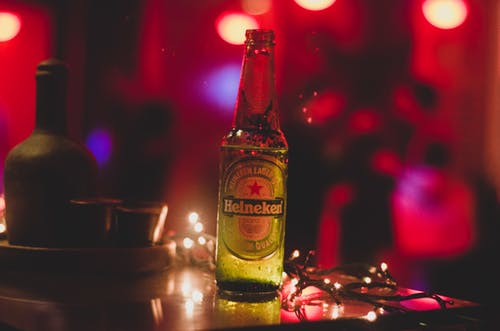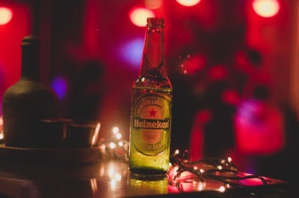Brewers of Europe feel that they might have to present the environmental impact along with their beer’s taste to their customers as the pollution regulations are tightening in Europe.
The EU has enforced “waste management laws” while banning “single-use plastics” over the last twelve months. Moreover, the watchdogs have also set a limit on CO2 emissions of trucks. In fact, this stance was strengthened by the victory of Green parties in “last month’s European Parliament election”.
During the “Brewers of Europe Forum” which took place in Antwerp, the chief executive of Heineken, Jean-Francois van Boxmeer said:
“The changing political landscape is forcing us to think there will be a stronger push for topics like climate change”.
The gathering comprised “1,000 beer specialists”, wherein the brewers remarked that they needed an innovative breakthrough to keep up with these “new demands and the targets they have set for themselves”. Carlsberg is the Danish brewer that has put forward “green objectives” like slashing down CO2 emissions to zero besides reducing fifty percent of its water consumption by 2030 with immediate gaol being 2022. In the words of the company’s C.E.O, Cees ‘t Hart:
“The biggest thing for us now as a new challenge is how do we make it sustainable”.
“We know how to reduce further. What we don’t know is how we go from 2022 to 2030”.
Van Boxmeer’s company has announced “new targets” for water consumption in March, while the work on packaging still remained as it contributed to 36% of its carbon footprints. In Van Boxmeer’s words:
“We have to deliver a lot more on the 36 percent ... That is perhaps one of the most technically challenging things we have to do”.
Asahi Breweries of Japan is a “relative newcomer” on the European market, which considers that innovation will need to deliver beyond “new brand variants”. Paolo Lanzarotti, the Head of Central European Operations at Asahi, said:
“Beyond the liquid, we’re going to see innovation in the areas of pouring technology and packaging. There will be very important changes coming from that direction”.
The “zero and low alcohol beers” are increasingly gaining popularity, whereby underscoring the broad public health awareness of responsible drinking which is also profitable to the breweries. Likewise, the industry oh breweries have to deal with “potential legislation” like “minimum pricing”. And Van Boxmeer added:
“It is very important to be pro-active... before you get badly legislated”.
References:
reuters.com
The EU has enforced “waste management laws” while banning “single-use plastics” over the last twelve months. Moreover, the watchdogs have also set a limit on CO2 emissions of trucks. In fact, this stance was strengthened by the victory of Green parties in “last month’s European Parliament election”.
During the “Brewers of Europe Forum” which took place in Antwerp, the chief executive of Heineken, Jean-Francois van Boxmeer said:
“The changing political landscape is forcing us to think there will be a stronger push for topics like climate change”.
The gathering comprised “1,000 beer specialists”, wherein the brewers remarked that they needed an innovative breakthrough to keep up with these “new demands and the targets they have set for themselves”. Carlsberg is the Danish brewer that has put forward “green objectives” like slashing down CO2 emissions to zero besides reducing fifty percent of its water consumption by 2030 with immediate gaol being 2022. In the words of the company’s C.E.O, Cees ‘t Hart:
“The biggest thing for us now as a new challenge is how do we make it sustainable”.
“We know how to reduce further. What we don’t know is how we go from 2022 to 2030”.
Van Boxmeer’s company has announced “new targets” for water consumption in March, while the work on packaging still remained as it contributed to 36% of its carbon footprints. In Van Boxmeer’s words:
“We have to deliver a lot more on the 36 percent ... That is perhaps one of the most technically challenging things we have to do”.
Asahi Breweries of Japan is a “relative newcomer” on the European market, which considers that innovation will need to deliver beyond “new brand variants”. Paolo Lanzarotti, the Head of Central European Operations at Asahi, said:
“Beyond the liquid, we’re going to see innovation in the areas of pouring technology and packaging. There will be very important changes coming from that direction”.
The “zero and low alcohol beers” are increasingly gaining popularity, whereby underscoring the broad public health awareness of responsible drinking which is also profitable to the breweries. Likewise, the industry oh breweries have to deal with “potential legislation” like “minimum pricing”. And Van Boxmeer added:
“It is very important to be pro-active... before you get badly legislated”.
References:
reuters.com






